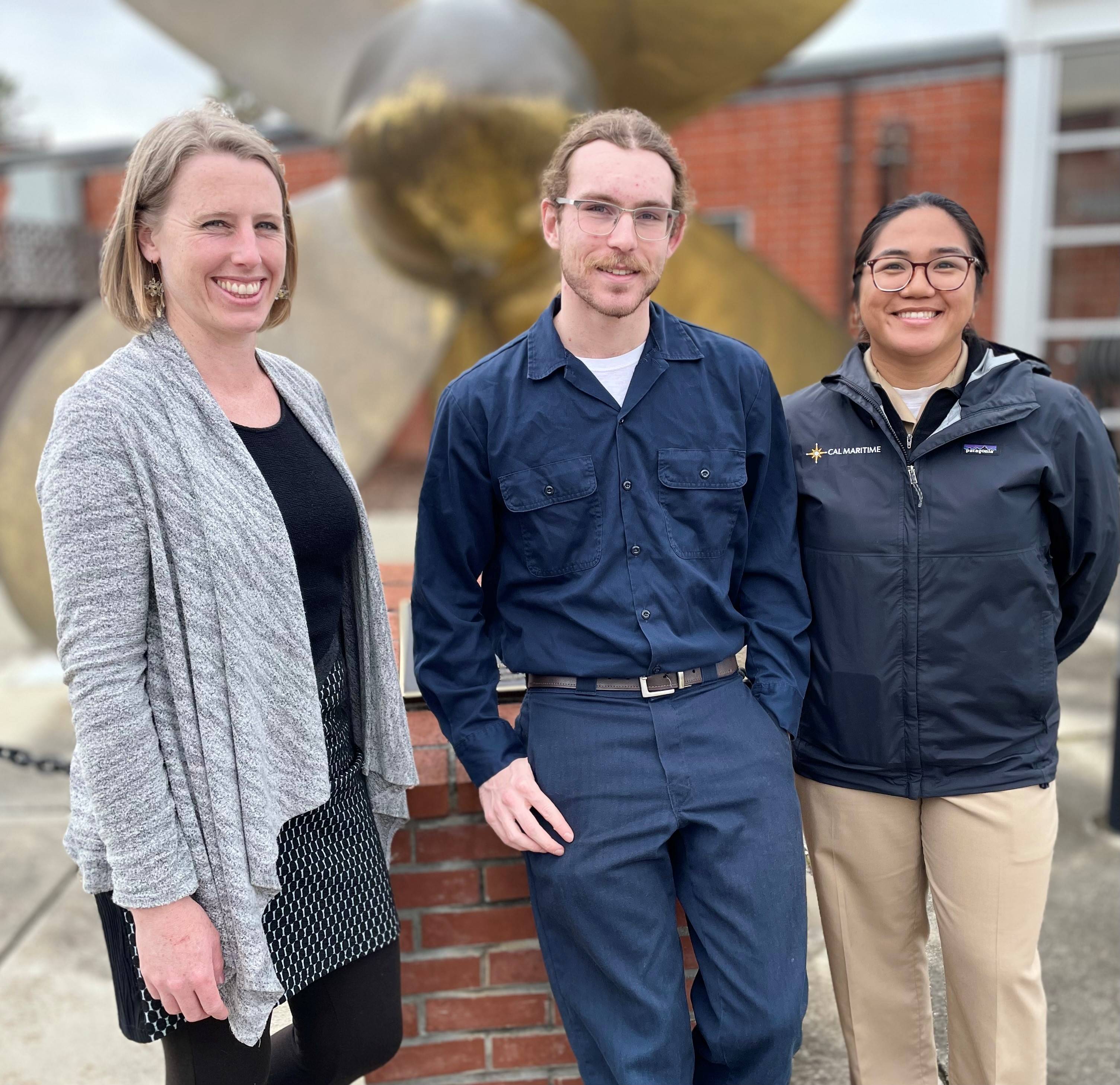
Roxanne Mina (BS Oceanography) and Riley Tillman (BS Mechanical Engineering) are working with Dr. Julie Simons (Mathematics) on a project to mathematically model the motion of flagella in viscous fluids, like oil. Flagella are long whiplike tails found in microorganisms like bacteria and algae. The research includes creating a laboratory simulation of flagella in a viscous fluid with the aim to quantify the forces, power expenditures, and efficiency of different modes of motility. Those results will then be used to develop a computational and mathematical model for bacterial movement. The applications of their work are important for informing bioremediation strategies for oil spills, including using extremophile “oil-eating” bacteria or building microrobots.
Dr. Simons explains: “This project aims to develop a research platform—both in the lab and computationally—that brings students and faculty from Oceanography, Mechanical Engineering, and Mathematics together, which will continue on to serve future generations of students. Working with Roxanne and Riley—two amazing students in oceanography and mechanical engineering—has been really wonderful because they can both leverage their expertise and backgrounds to contribute to the project in different ways. They are paving the path for future research teams and new questions to be explored, both in bio-locomotion and bio-inspired locomotion, which is really exciting.”
Roxanne was able to develop the skills needed to be successful in the science field. She learned about proposal writing and the effort required to earn funding for research. She also had the opportunity to learn about computational analysis and instruments that would not have been taught in the classroom. Overall, her experience has led to a deeper understanding about the teamwork and effort that it takes for research projects to succeed.
Riley has enjoyed applying mechanical engineering knowledge to scientific research applications and putting theoretical knowledge into practice. Collaboration with researchers from different disciplines has broadened his perspective about the interdisciplinary nature of scientific endeavors and the importance of teamwork in achieving research goals.
Results from this study were presented at the National Conference of Undergraduate Research in Long Beach, CA. Riley and Roxanne received financial support to conduct this research from the CSU Council on Ocean Affairs, Science and Technology (CSU- COAST) Undergraduate Research Support Program and the Louis Stokes Alliance for Minority Participation (CSU-LSAMP) Program